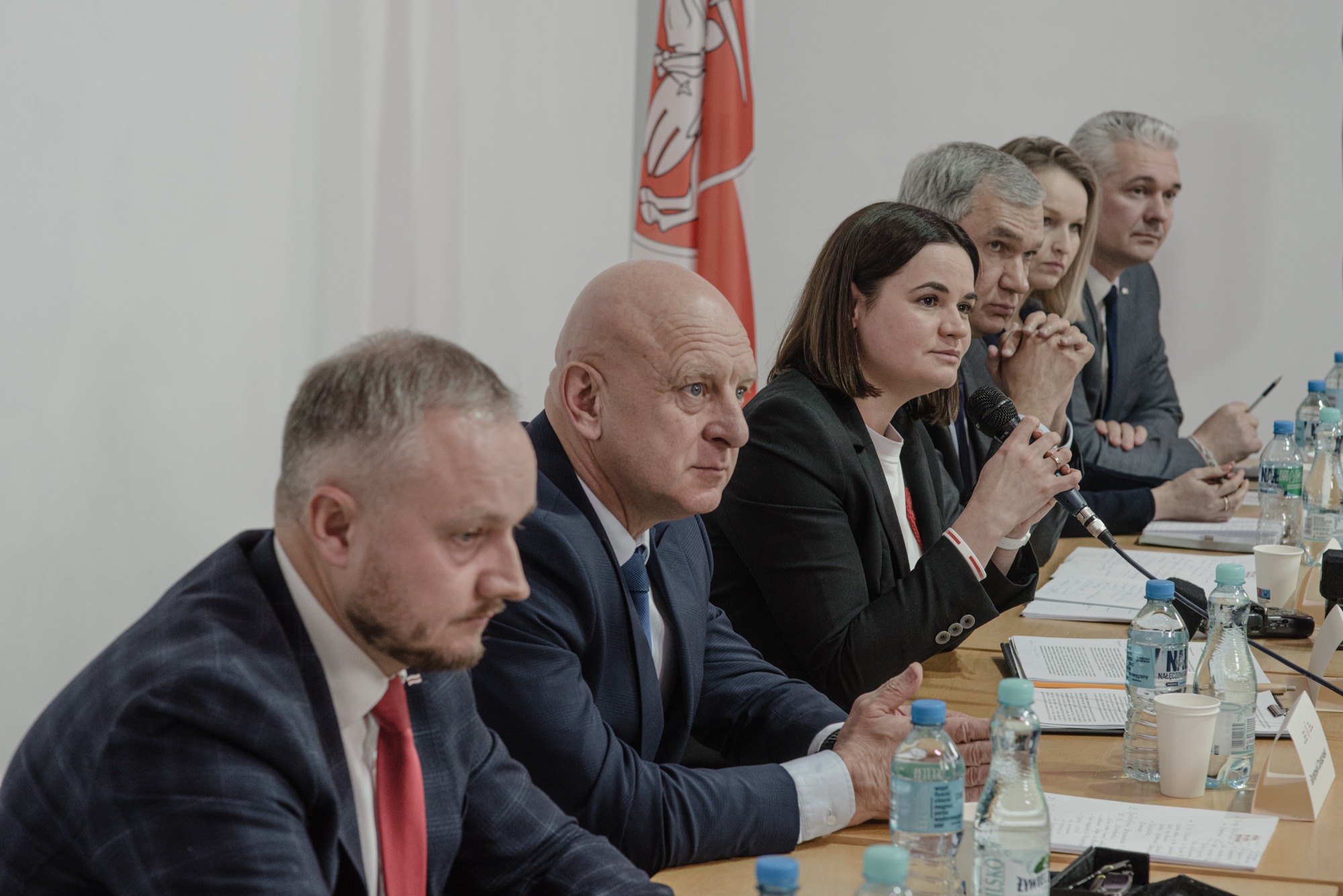Restructuring Democratic Forces: Pazniak’s Security Council vs Tsikhanouskaya’s Cabinet
 The situation has not changed
The situation has not changed
Zyanon Pazniak and volunteers of Kalinouski’s regiment are forming a new opposition bloc and attracting critics of Tsikhanouskaya’s Cabinet. In the coming months, tension and recrimination between the Cabinet and Pazniak’s Security Council will polarise democratic movement activists.

The Joint Transitional Cabinet is trying to increase transparency. Tsikhanouskaya’s office issued a report regarding its activities over the first six months of operation (commencing August 9th, 2022). The Cabinet concentrates its efforts on
- regime delegitimisation
- sanctions
- isolation of Lukashenka
- prosecution of regime functionaries for repression and violence
- strengthening international recognition of democratic forces
- training of personnel to prepare for democratic transition in Belarus
- assistance to political prisoners and support of national culture
- development of the power bloc of the democratic movement.
The position of the Cabinet regarding the prosecution of the Lukashenka regime is echoed in Washington, with the US Representative to the OSCE, Michael Carpenter, stating that the US wants to bring the Lukashenka regime to justice for repression and complicity in Russian aggression against Ukraine.
However, protest movement expectations that the Tsikhanouskaya Cabinet would exert influence on the internal Belarusian agenda have not been fulfilled due to the harsh repression and depoliticisation of the population.
Opponents of the Lukashenka regime are becoming disillusioned with Tsikhanouskaya’s broad coalition as the prolonged anti-democratic reaction within the country continues.
Meanwhile, against this background of frustration, an alternative bloc is forming around Zyanon Pazniak, the opposition leader in the 1990s. At a press conference in Warsaw, Pazniak announced the establishment of a Security Council in conjunction with Kalinouski’s regiment, whose volunteers continue to strengthen their position by outlining their political ambitions.
The Coordinating Council is revising its composition and organisation to involve a more comprehensive range of civil society organisations and opinion leaders. However, the influence of the Council on the Belarusian political agenda remains insignificant, and its future role in the democratic movement remains uncertain.
The decentralised anti-war movement successfully counters Russian aggression and censorship in the post-Soviet space. “Cyber guerrillas” hacked “Roskomnadzor“, downloaded more than two terabytes of data, and assisted several investigations by independent Russian media organisations.
The influence of Pazniak’s Security Council on the policy agenda will increase soon, as will tension and mutual recrimination in the democratic movement. This may lead to the fragmentation of opposition to Lukashenka and weaken the broad coalition led by Tsikhanouskaya.
Subscribe to our newsletter




Situation in Belarus
Constitutional referendum: main consequences


 Video
Video
How to count the political prisoners: are the new criteria needed?


 Video
Video
Paternalism In Decline, Belarusian Euroscepticism, And The Influence Of Russia


 Video
Video












